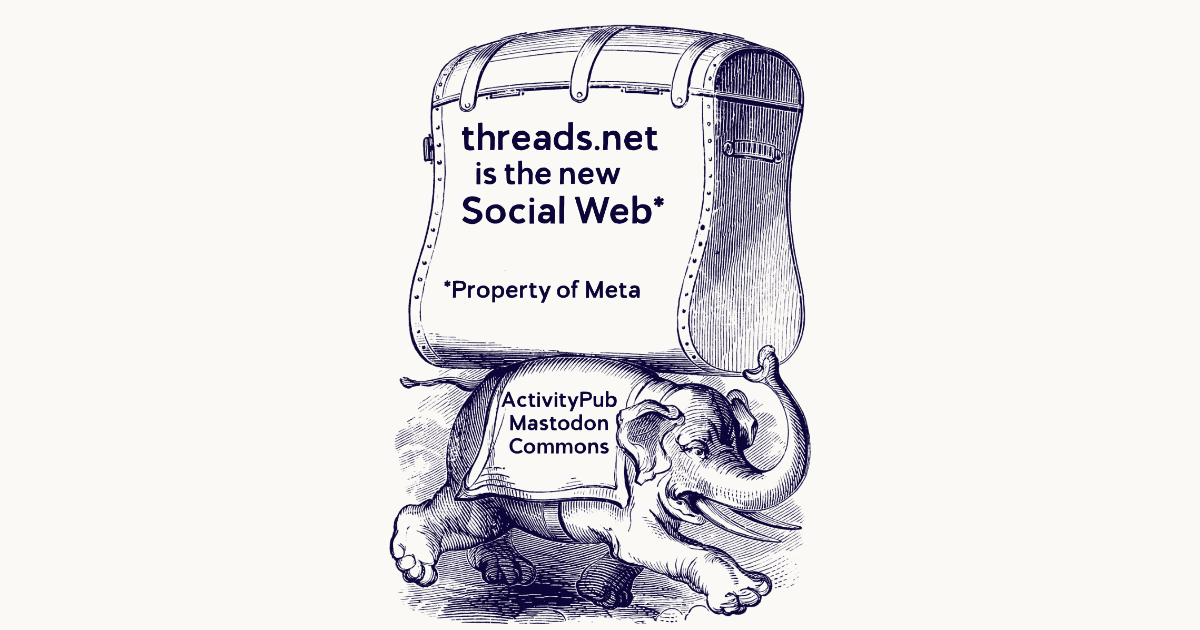

Agreed, and a very good point. “Visible to people on allow-list servers” is very much along the lines of local-only posts (“visible to people only on this server”). I think of it as “scoped” visibility, although leashed or moored might well be a better term.

Yep. I very much agree with all of you. Here’s how I phrased it in Embrace, Extend, and Exploit: Meta’s plan for ActivityPub, Mastodon and the fediverse